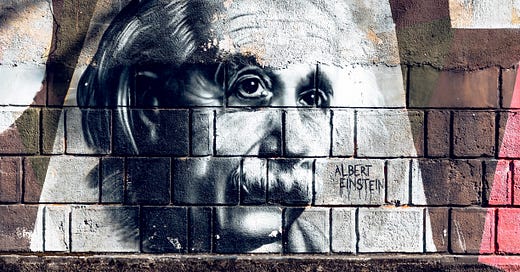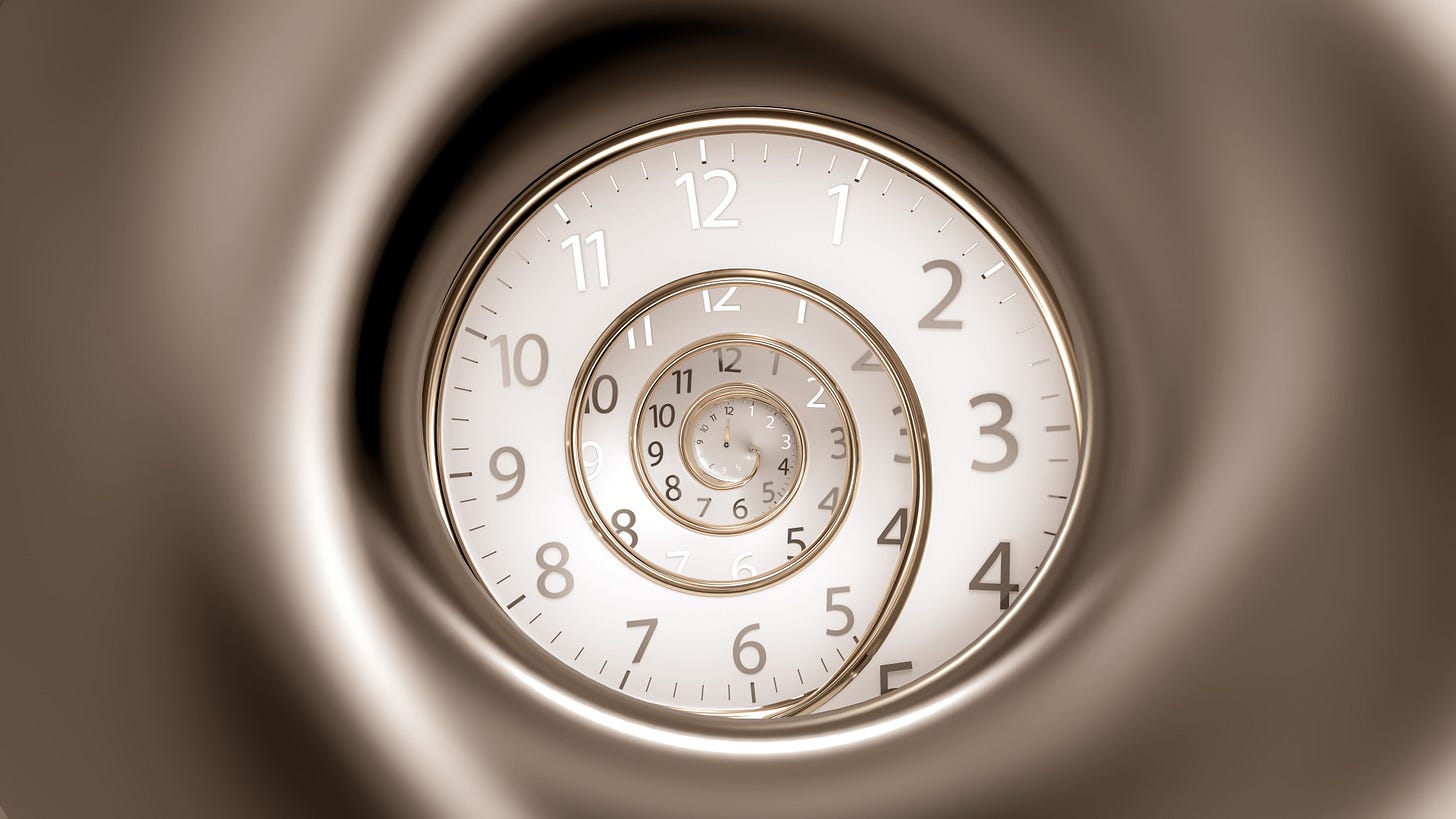What Is Death? Einstein Had an Answer.
Albert Einstein once wrote that the difference between past, present, and future is only “a stubbornly persistent illusion.”
He wasn’t writing to a fellow physicist or publishing in a journal. He was writing to the family of his close friend, Michele Besso, after Besso had passed away. In the letter, Einstein tried to offer comfort, saying:
“Now he has departed from this strange world a little ahead of me. That means nothing. For us believing physicists, the distinction between past, present, and future is only a stubbornly persistent illusion.”
It’s a simple, profound way of saying—nothing is ever truly gone.
And in recovery, that perspective can change everything. Because if Einstein was right, then maybe you haven’t lost time. Maybe every step you’ve taken, even the missteps, still exists—waiting for you to build on them.
Addiction Feels Like a Slow Death
For many, addiction feels like a kind of death. Not the kind that happens all at once, but the kind that takes you little by little—stealing your relationships, your health, your sense of self. You lose time. You lose memories. You lose people who mattered.
And when you finally realize how much is gone, it can feel impossible to rebuild. The voice of addiction tells you, it’s too late. You’ve wasted too much time. You can’t undo the past.
But what if the past isn’t gone? What if Einstein was right, and everything you’ve lived through—every attempt to get better, every sober day, every lesson learned—is still a part of you?
(The Illusion of Time)
Einstein’s Theory—What If Nothing Is Ever Truly Lost?
Einstein believed that time doesn’t work the way we think it does. We see it as linear, like a straight road where once you pass something, it’s behind you forever. But in reality, he argued, time is more like a landscape—all of it still exists, even if we’ve moved to a different part of it. Think about that in terms of recovery.
A relapse doesn’t erase the sober days that came before it. Those days still happened. The strength you built during them is still inside you.
That means no one is ever “starting over.” No one is too far gone. Because everything you’ve lived through is still with you, still shaping you into the person who is capable of healing.
(The concept of spacetime refers to the idea that space and time are interconnected, forming a single continuum.)
Your Recovery Is Already Written on the Fabric of Time
Recovery isn’t about erasing the past. It’s about building from it. Even if you’ve relapsed, you’re not back at zero. The work you’ve done—the things you’ve learned, the growth you’ve experienced—is real. It still exists. Every meeting you attended, every time you reached out for help, every moment of clarity you had—it’s all still part of your story. It’s written into the fabric of who you are.
So if you've relapsed and you're still standing, yes, let out the tears of frustration, scream, shout, feel what you need to feel. But remember: free will is a gift given to us by the universe. Start thinking about the next step to get back on track—whether that’s getting treatment, asking for help from loved ones, or cutting people out of your life who do you no good. Put a plan in place, so that when you’re sober and the cravings hit, you have something to fall back on.
My personal plan? When I start feeling cravings or feeling down, I do 50 pushups and remind myself that my brain is only playing tricks on me. Now, having worked at Asana Recovery for almost a year, I understand it’s way more difficult than that. But giving yourself perspective—reminding yourself that this moment isn’t permanent—is key to getting back on track.
So instead of asking, “How do I start over?” ask, “How do I continue?”
Because you are already further along than you think.
It’s Never Too Late to Come Back
If you’ve been struggling, if you’ve felt like too much time has passed, if you think you’re beyond saving—you’re not.
Time isn’t working against you. The past isn’t gone. Everything you’ve lived through has brought you here, to this moment, where you still have a choice. You can reach out. You can pick up where you left off. You can come back. Call 949-763-3440 for more information.
Whether it’s detox, residential treatment, or outpatient care—Asana Recovery offers support at every stage of recovery. We meet you where you are, without judgment. We’ll be here when you’re ready.
🧠 Trivia Time!
In 1931, Albert Einstein met Charlie Chaplin at the Los Angeles premiere of the silent film City Lights. During their iconic conversation, Einstein complimented Chaplin’s universal appeal.
What did Einstein say to Chaplin?
And how did Chaplin respond?
🎁 Only correct answers will be considered.
⏳ Two winners will be chosen after 24 hours.
💳 Winners will receive a $15 gift card—your choice of Amazon, DoorDash, or Uber.
📩 Email your answer to david@asanarecovery.com to enter!







